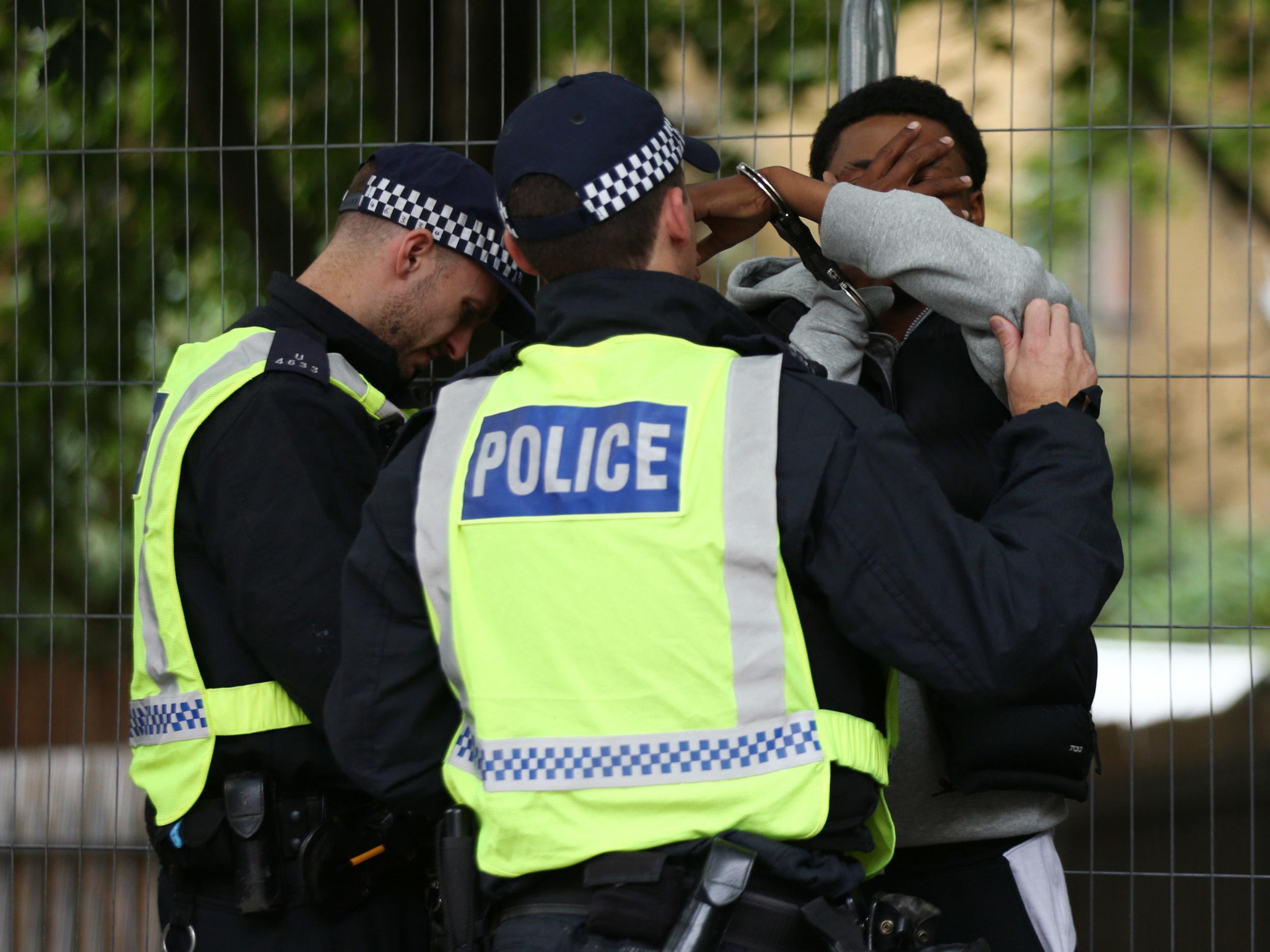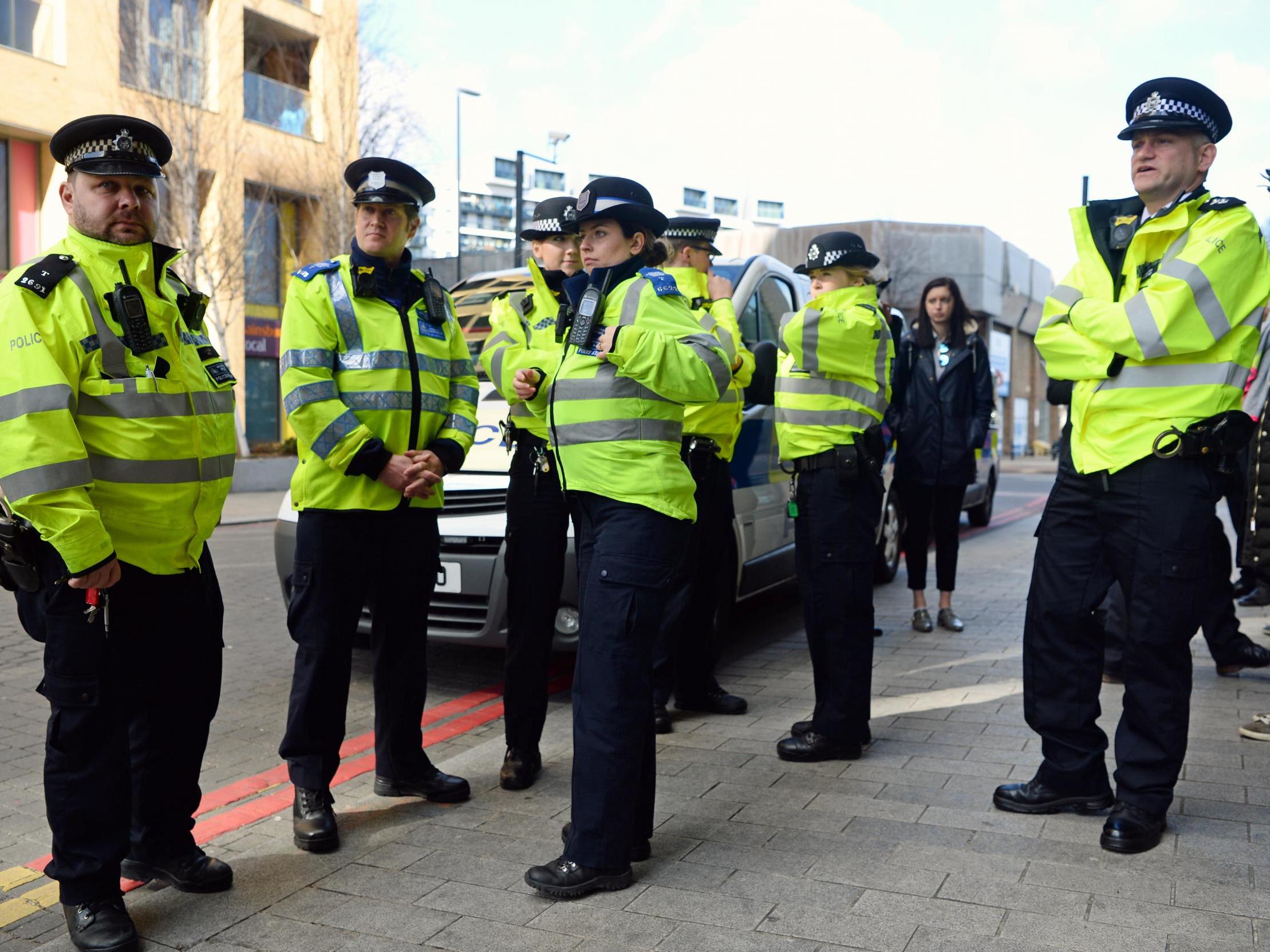Black Lives Matter: Police failed to heed warnings over disproportionate use of stop and search, watchdog says
National police leaders announced a 'plan of action' on racial inequality amid protests last month

Your support helps us to tell the story
This election is still a dead heat, according to most polls. In a fight with such wafer-thin margins, we need reporters on the ground talking to the people Trump and Harris are courting. Your support allows us to keep sending journalists to the story.
The Independent is trusted by 27 million Americans from across the entire political spectrum every month. Unlike many other quality news outlets, we choose not to lock you out of our reporting and analysis with paywalls. But quality journalism must still be paid for.
Help us keep bring these critical stories to light. Your support makes all the difference.
Police forces were told to address the disproportionate use of stop and search against young black men two years ago but failed to meet official recommendations, a report has said.
The use of the controversial powers, which have rocketed during the coronavirus lockdown, has been a central concern in Black Lives Matter demonstrations.
The National Police Chiefs’ Council (NPCC) announced a “plan of action” to address racial inequality last month, but on Thursday a watchdog noted they had been warned in 2018.
“Forces need to do more to address the disproportionate use of police powers,” said the annual State of Policing report by HM Inspectorate of Constabulary (HMICFRS).
“No force has fully met our 2017 legitimacy recommendation to address the disproportionate use of stop and search involving BAME people.
“It is important that forces understand the causes of this disproportionality and explain it to the public.”
The 2017 report, which was published in June 2018, raised concern black people were over-represented in stop-and-search figures and most forces “can’t explain the reasons for this well enough”.
At the time, black people were eight times more likely to be stopped and searched than white people, but the figure rose to 9.5 times in 2018-19.
The use of the power has risen significantly in the past year following an increase in serious violence, and hit the highest level seen in seven years in London in April.
Campaigners were critical of the activity during the UK’s coronavirus lockdown, which saw dramatic falls in violence and other types of crime, accusing police of leaving black and ethnic minority people “over-policed and under-protected”.
HM Chief Inspector of Constabulary, Sir Thomas Winsor, said police must “remain sensitive to valid criticisms of disproportionality in stop-and-search and the use of force”.
“Those special powers given by the community to police officers must always be used on sound lawful grounds, to enhance public safety and never to alienate local people,” he added.
“Policing in the UK is based on public consent and support - justified resentment is corrosive of that essential precious quality.”
A spokesperson for the NPCC said stop and search was "an important power that allows police officers to tackle those who want to cause harm in communities and prevent people from becoming victims of crime".
“We recognise that there is a need to address concerns over its use and to be as transparent and open as possible to maintain the trust of the diverse communities we serve," a statement added.
"The NPCC are currently developing a plan of action on race and diversity, which will consider stop and search.”
The HMICFRS 2019 report, published on Thursday, said that black and ethnic minority police officers were still under-represented but that forces were “slowly” improving.
“To build trust, forces need to reflect the communities they are serving,” it added.
Police leaders hope the recruitment of 20,000 extra police officers over three years will help to improve diversity, but there are warnings about failures to retain ethnic minority officers and promote them to higher ranks.
The president of the National Black Police Association (NBPA) previously told The Independent that recent protests were forcing the service to confront longstanding issues over the treatment both of minority ethnic officers and the public.
“We may be seeing a watershed moment for British policing,” Sergeant Tola Munro said.
Sir Thomas said that for the 20,000 uplift to be achieved 54,000 people would have to be recruited because of people leaving the service and the staff required to support new recruits.
“You don't just need 20,000 more big, heavy lads to deal with pub fights,” he added. “You need people with the skills to deal with modern criminality, a great deal of which is online.”
Asked about potential barriers to recruitment, Sir Thomas suggested he would support changes to mean that people with minor drug convictions would not automatically be buried from joining the police.
“It’s a headache because it may be that a teenager has been given a caution for possession for a small amount of cannabis, for example, and it happened a long time ago,” he added.
“It really depends on the severity and seriousness of the offence.”

He called for a series of changes to modernise policing in England and Wales, including changes to the current structure of 43 regional forces.
Sir Thomas said the structure was “no longer fit for purpose” following the rise of technology, adding: “The lines on the map that delineate police force areas can act as barriers and obstacles to the flow of information and intelligence, and impediments to efficiency and effectiveness.”
He suggested that 43 forces could be kept, but operate according to new national standards governing the procurement of technology and other issues.
The chief inspector repeated calls for the Home Office to offer three-year funding settlements to efficient police officers, rather than “inefficient” annual packages.
With prosecutions standing at a record low in England and Wales, Sir Thomas warned of a “real risk” that the inability to solve common crimes was causing the public to lose confidence in police.
His report warned that some crime investigations “have been reduced to little more than a telephone conversation with the victim”, while only 6 per cent of burglaries, 3 per cent of vehicle crimes and 13 per cent of violent crimes were solved in 2018-19.
Sir Thomas added: “If the public wants some very significant improvements in the investigation and detection of these kinds of offences, then they're going to have to answer the question: Do we want to pay more?”
Subscribe to Independent Premium to bookmark this article
Want to bookmark your favourite articles and stories to read or reference later? Start your Independent Premium subscription today.
Join our commenting forum
Join thought-provoking conversations, follow other Independent readers and see their replies
Comments